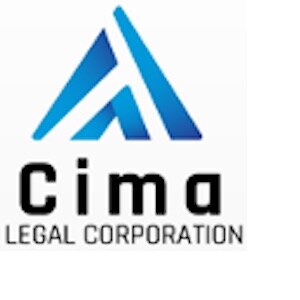Best Wrongful Termination Lawyers in Ecuador
Share your needs with us, get contacted by law firms.
Free. Takes 2 min.
Or refine your search by selecting a city:
List of the best lawyers in Ecuador
About Wrongful Termination Law in Ecuador
Wrongful termination in Ecuador refers to an unlawful dismissal of an employee, which violates the terms of employment stipulated by Ecuadorian labor laws. The Ecuadorian legal system mandates that terminations must have a justified cause as per the Labor Code. Employees who believe their dismissal was unjust have the right to seek redress through the legal system.
Why You May Need a Lawyer
Legal assistance might be necessary in various situations, such as when an employee is unsure if their termination meets the criteria for wrongful dismissal or if unfair labor practices were involved. A lawyer can offer guidance on gathering evidence, navigating legal procedures, and representing the case in court to possibly secure compensation or reinstatement.
Local Laws Overview
Ecuador's Labor Code defines specific grounds for lawful termination, including misconduct, negligence, and redundancy. Dismissals without just cause require the employer to pay severance. The law also protects certain groups, such as pregnant women and union leaders, by imposing stricter conditions on their termination. Moreover, employers are required to provide notice periods and compensation for unjust dismissals.
Frequently Asked Questions
What constitutes wrongful termination in Ecuador?
Wrongful termination occurs when an employer dismisses an employee without a legally justified reason as defined by the Labor Code.
What are some examples of just cause for termination?
Just causes can include repeated misconduct, failure to fulfill duties, and operational redundancy due to legitimate business needs.
Is severance pay mandatory for wrongful termination?
Yes, if the termination is deemed wrongful, the employee is entitled to receive severance pay according to the length of their employment.
Can I challenge a wrongful termination in court?
Yes, employees have the right to file a complaint with the labor courts, which will evaluate the legitimacy of the termination.
How long do I have to file a wrongful termination claim?
Typically, claims should be filed within two months from the date of termination to be considered by the court.
Do I qualify for protection if I am a union member?
Union members are afforded additional protections, and employers must meet specific conditions to terminate their employment.
What documentation will I need to support my claim?
Relevant documentation includes employment contracts, termination letters, and any correspondence related to the termination.
Can my employer terminate me without notice?
Unnotified terminations require the employer to compensate the employee for the duration of the notice period.
Are there exceptions to at-will employment in Ecuador?
Ecuador does not follow the at-will employment doctrine; terminations must always have a valid legal ground.
What should I do if I believe I have been wrongfully terminated?
It’s recommended to consult a lawyer specializing in labor law to evaluate your case and discuss potential legal actions.
Additional Resources
Individuals can seek assistance and information from the Ministry of Labor in Ecuador, which provides guidance on labor rights and dispute resolution. Local legal aid organizations and the Ecuadorian Bar Association can also offer support and resources.
Next Steps
If you believe you have been wrongfully terminated, gather all pertinent documents and seek consultation with a qualified labor lawyer. They can assess your case, clarify any legal uncertainties, and help you advance through the legal process to assert your rights effectively.
Lawzana helps you find the best lawyers and law firms in Ecuador through a curated and pre-screened list of qualified legal professionals. Our platform offers rankings and detailed profiles of attorneys and law firms, allowing you to compare based on practice areas, including Wrongful Termination, experience, and client feedback.
Each profile includes a description of the firm's areas of practice, client reviews, team members and partners, year of establishment, spoken languages, office locations, contact information, social media presence, and any published articles or resources. Most firms on our platform speak English and are experienced in both local and international legal matters.
Get a quote from top-rated law firms in Ecuador — quickly, securely, and without unnecessary hassle.
Disclaimer:
The information provided on this page is for general informational purposes only and does not constitute legal advice. While we strive to ensure the accuracy and relevance of the content, legal information may change over time, and interpretations of the law can vary. You should always consult with a qualified legal professional for advice specific to your situation.
We disclaim all liability for actions taken or not taken based on the content of this page. If you believe any information is incorrect or outdated, please contact us, and we will review and update it where appropriate.
Browse wrongful termination law firms by city in Ecuador
Refine your search by selecting a city.














